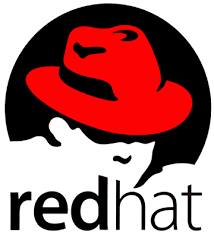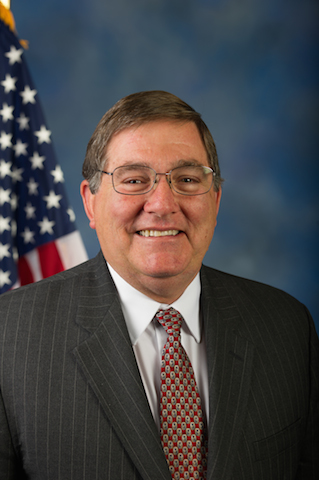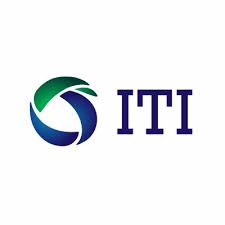 In June 2020, the Secretary-General of the United Nations published a "Roadmap for Digtal Cooperation." In this report, he expanded on recommendations made a year before, calling on all actors, including the Member States, the United Nations system, the private sector, and others, to promote digital public goods. He says to realize the benefits of increased internet connectivity, open source projects in the form of digital public goods must be at the center. While the term "digital public good" appears as early as April 2017, this report offers the first broadly accepted definition of digital public goods...The Digital Public Goods Alliance (DGPA) translated that definition into a nine-indicator open standard that we hope will serve as a comprehensive, shared definition to promote the discovery, development, use of, and investment in digital public goods for a more equitable world.
In June 2020, the Secretary-General of the United Nations published a "Roadmap for Digtal Cooperation." In this report, he expanded on recommendations made a year before, calling on all actors, including the Member States, the United Nations system, the private sector, and others, to promote digital public goods. He says to realize the benefits of increased internet connectivity, open source projects in the form of digital public goods must be at the center. While the term "digital public good" appears as early as April 2017, this report offers the first broadly accepted definition of digital public goods...The Digital Public Goods Alliance (DGPA) translated that definition into a nine-indicator open standard that we hope will serve as a comprehensive, shared definition to promote the discovery, development, use of, and investment in digital public goods for a more equitable world.
open standards
See the following -
Q&A: Dave Peters on open source adoption within Veterans Affairs
The high-profile attention open source adoption within the Veterans Affairs Department received from some now-retired political appointee executives was a spur to action – but also led over the past year to worries that with those executives gone, open source would no longer be a priority. Read More »
- Login to post comments
Red Hat Powers New Generation of High-Performance Virtualization Based on Open Standards with Red Hat Virtualization 4
 Red Hat, Inc., the world's leading provider of open source solutions, today announced the general availability of Red Hat Virtualization 4, the newest release of its Kernel-based Virtual Machine (KVM) -powered virtualization platform. Red Hat Virtualization 4 challenges the economics and complexities of proprietary virtualization solutions by providing a fully-open, high-performing, more secure, and centrally managed platform for both Linux- and Windows-based workloads. It combines a powerful updated hypervisor, advanced system dashboard, and centralized networking for users’ evolving workloads...
Red Hat, Inc., the world's leading provider of open source solutions, today announced the general availability of Red Hat Virtualization 4, the newest release of its Kernel-based Virtual Machine (KVM) -powered virtualization platform. Red Hat Virtualization 4 challenges the economics and complexities of proprietary virtualization solutions by providing a fully-open, high-performing, more secure, and centrally managed platform for both Linux- and Windows-based workloads. It combines a powerful updated hypervisor, advanced system dashboard, and centralized networking for users’ evolving workloads...
- Login to post comments
Red Hat Unleashes the Power of Linux Containers with Industry’s Broadest Solution Set
 Red Hat, Inc., the world's leading provider of open source solutions, today announced the availability of the IT industry’s most comprehensive set of enterprise-grade Linux container solutions. Red Hat’s container portfolio spans nearly every application delivery need, from free development tools to a comprehensive container platform that integrates management, Platform-as-a-Service (PaaS) and Containers-as-a-Service (CaaS). Addressing modernization of existing IT investments and innovation alike, Red Hat now enables customers to better leverage the full benefits of containerization with more secure, portable and consistent container-based solutions, supporting key open standards such as the Open Container Initiative (OCI) container format and Kubernetes orchestration...
Red Hat, Inc., the world's leading provider of open source solutions, today announced the availability of the IT industry’s most comprehensive set of enterprise-grade Linux container solutions. Red Hat’s container portfolio spans nearly every application delivery need, from free development tools to a comprehensive container platform that integrates management, Platform-as-a-Service (PaaS) and Containers-as-a-Service (CaaS). Addressing modernization of existing IT investments and innovation alike, Red Hat now enables customers to better leverage the full benefits of containerization with more secure, portable and consistent container-based solutions, supporting key open standards such as the Open Container Initiative (OCI) container format and Kubernetes orchestration...
- Login to post comments
Regarding Open Source, Security, and Cloud Migration, Old Prejudices Die Hard in Health Care
 Although the health care industry has made great strides in health IT, large numbers of providers remain slow to reap the benefits of a “digital transformation”. Health care organizations focus on what they get paid for and neglect other practices that would improve care and security. At conferences and meetings year and after year, I have to listen to health care leaders tediously explode the same myths and explain the same principles over and over. In this article I'll concentrate on the recent EXPO.health conference, put on in Boston by John Lynn's Healthcare Scene, where the topics of free and open source EHRs, security, and cloud migration got mired down in rather elementary discussions.
Although the health care industry has made great strides in health IT, large numbers of providers remain slow to reap the benefits of a “digital transformation”. Health care organizations focus on what they get paid for and neglect other practices that would improve care and security. At conferences and meetings year and after year, I have to listen to health care leaders tediously explode the same myths and explain the same principles over and over. In this article I'll concentrate on the recent EXPO.health conference, put on in Boston by John Lynn's Healthcare Scene, where the topics of free and open source EHRs, security, and cloud migration got mired down in rather elementary discussions.
- Login to post comments
Rep. Burgess' Office Releases Draft Interoperability Bill for Discussion
 The office of Rep. Michael Burgess, MD (R-TX) released a draft of the interoperability bill that they have been working for the past several months on Friday. Rep. Burgess, one of the few physicians in Congress, has been working very hard with his staff to come up with legislation that can fix the current Health IT "lock-in" crisis. This is a bipartisan effort that has full backing from the top leadership in Congress. The staff is seeking input from the Health IT community on the draft bill. Burgess's office will take comments on the draft through March 13. Rep. Burgess' staff was kind enough to provide Open Health News with a copy of the draft legislation. We have posted the entire draft bill as is below and will be writing some our thoughts over the next few days.
The office of Rep. Michael Burgess, MD (R-TX) released a draft of the interoperability bill that they have been working for the past several months on Friday. Rep. Burgess, one of the few physicians in Congress, has been working very hard with his staff to come up with legislation that can fix the current Health IT "lock-in" crisis. This is a bipartisan effort that has full backing from the top leadership in Congress. The staff is seeking input from the Health IT community on the draft bill. Burgess's office will take comments on the draft through March 13. Rep. Burgess' staff was kind enough to provide Open Health News with a copy of the draft legislation. We have posted the entire draft bill as is below and will be writing some our thoughts over the next few days.
Report Highlights Positive Elements of U.S. Government Open Source Adoption
 I think we've all read our fair share of reports about lessons learned and the challenges and opportunities for governments taking up open source software. Frankly, many of them seem a bit dry, and often repetitive. But one study I recently came across (that has not received much media coverage) stood out. Its predicate was different that most, recognizing the positive: open source software (OSS) "is being used in [the U.S.] government, as well as being released by the government (as both minor improvements and whole new projects), and the government is receiving benefits from doing so. However, many in government are unaware of this." In short, it appears to find the glass half filled—or better—rather than half empty...
I think we've all read our fair share of reports about lessons learned and the challenges and opportunities for governments taking up open source software. Frankly, many of them seem a bit dry, and often repetitive. But one study I recently came across (that has not received much media coverage) stood out. Its predicate was different that most, recognizing the positive: open source software (OSS) "is being used in [the U.S.] government, as well as being released by the government (as both minor improvements and whole new projects), and the government is receiving benefits from doing so. However, many in government are unaware of this." In short, it appears to find the glass half filled—or better—rather than half empty...
- Login to post comments
Report on ONC's Public Health Data Systems Hearing: Ensuring a Data-Driven Response to COVID-19
 As part of HHS's response to President Biden's Executive Order on Ensuring a Data-Driven Response to COVID-19 and Future High-Consequence Public Health Threats, ONC's Health Information Technology Advisory Committee (HITAC) recently held an expert panel hearing to understand the performance of public health data systems during the COVID-19 pandemic response and other gap areas in current infrastructure ... Forthcoming recommendations from the Public Health Data Systems Task Force will identify and prioritize policy and technical gaps to be addressed in order to help ensure a more effective response to future public health threats. These recommendations are expected to be issued later this summer.
As part of HHS's response to President Biden's Executive Order on Ensuring a Data-Driven Response to COVID-19 and Future High-Consequence Public Health Threats, ONC's Health Information Technology Advisory Committee (HITAC) recently held an expert panel hearing to understand the performance of public health data systems during the COVID-19 pandemic response and other gap areas in current infrastructure ... Forthcoming recommendations from the Public Health Data Systems Task Force will identify and prioritize policy and technical gaps to be addressed in order to help ensure a more effective response to future public health threats. These recommendations are expected to be issued later this summer.
- Login to post comments
Separating The Opportunities From The Obstacles In Open-Source Networking
Open standards have driven the networking market since the earliest days of the Internet...A major industry transition to open source for software-defined networking (SDN) is under way, and users and vendors stand to benefit...
- Login to post comments
Setting A Standard For Digital Public Goods
- Login to post comments
Sharing knowledge: VIPS on exclusive UN list for open source digital goods - Nibio
 A new international initiative the Digital Public Goods Alliance (DPGA), endorsed by the UN, aims to accelerate attainment of the UN Sustainable Development Goals (SDGs) in low- and middle-income countries by investing and sharing openly licensed technologies. This includes open source software, data, AI models, standards and content that adhere to privacy and other applicable best practices. VIPS, an open online free of charge forecast and information service for decision support in integrated management of pests, diseases and weeds - created by the Norwegian Institute of Bioeconomy Research, NIBIO, is one of 22 technologies chosen from almost 500 nominees for the registry. The MET Norway Weather API also made the list from Norway.
A new international initiative the Digital Public Goods Alliance (DPGA), endorsed by the UN, aims to accelerate attainment of the UN Sustainable Development Goals (SDGs) in low- and middle-income countries by investing and sharing openly licensed technologies. This includes open source software, data, AI models, standards and content that adhere to privacy and other applicable best practices. VIPS, an open online free of charge forecast and information service for decision support in integrated management of pests, diseases and weeds - created by the Norwegian Institute of Bioeconomy Research, NIBIO, is one of 22 technologies chosen from almost 500 nominees for the registry. The MET Norway Weather API also made the list from Norway.
- Login to post comments
Skunkworks Opens Up IT For Debate
Healthcare communities need to take responsibility for establishing the interoperability of IT systems, said one of the speakers during the Skunkworks debate at EHI Live 2012. Read More »
- Login to post comments
SynApps Solutions and Alfresco Launch Open Source VNA Medical Content Platform
 Content management leader SynApps Solutions and key technology partner Alfresco are today launching the Open Source VNA (Vendor Neutral Archive) medical data system for the UK health market – based on Alfresco’s award-winning technology and functionality from integration leader J4Care, delivered and supported via SynApps’ extensive professional skills and resources. VNA (Vendor Neutral Archive) platform is a strongly-emerging standards-based way of extending PACS (Picture Archiving and Communications System) services to manage DICOM and other format content so as to make the sharing of medical and patient information as easy, secure and safe as possible.
Content management leader SynApps Solutions and key technology partner Alfresco are today launching the Open Source VNA (Vendor Neutral Archive) medical data system for the UK health market – based on Alfresco’s award-winning technology and functionality from integration leader J4Care, delivered and supported via SynApps’ extensive professional skills and resources. VNA (Vendor Neutral Archive) platform is a strongly-emerging standards-based way of extending PACS (Picture Archiving and Communications System) services to manage DICOM and other format content so as to make the sharing of medical and patient information as easy, secure and safe as possible.
- Login to post comments
Tech Giants Back White House Open Source Health IT Initiative
 Six major technology companies have thrown their support behind the White House's initiative to use an open source, collaborative, approach to accelerate the progress of health data standards and interoperability and to give patients access and control of their medical records. The companies; Amazon, Google, IBM, Microsoft, Oracle, and Salesforce signed a pledge that was presented at the White House's Blue Button 2.0 developer conference. The conference took place last Monday. Dean Garfield, president and CEO of the Information Technology Industry Council (ITI) told the press that “As transformative technologies like cloud computing and artificial intelligence continue to advance, it is important that we work towards creating partnerships that embrace open standards and interoperability.
Six major technology companies have thrown their support behind the White House's initiative to use an open source, collaborative, approach to accelerate the progress of health data standards and interoperability and to give patients access and control of their medical records. The companies; Amazon, Google, IBM, Microsoft, Oracle, and Salesforce signed a pledge that was presented at the White House's Blue Button 2.0 developer conference. The conference took place last Monday. Dean Garfield, president and CEO of the Information Technology Industry Council (ITI) told the press that “As transformative technologies like cloud computing and artificial intelligence continue to advance, it is important that we work towards creating partnerships that embrace open standards and interoperability.
- The Future Is Open
- Login to post comments
Tech Industry Pledges to Improve Healthcare Through Open Source Health IT
 Today, ITI President and CEO Dean Garfield and several ITI member companies participated in the Blue Button 2.0 Developer Conference at the White House where they announced their commitment to removing barriers for the adoption of technologies for healthcare interoperability, particularly those that are enabled through the cloud and AI...“Today’s announcement will be a catalyst to creating better health outcomes for patients at a lower cost,” said ITI president and CEO Dean Garfield. “As transformative technologies like cloud computing and artificial intelligence continue to advance, it is important that we work towards creating partnerships that embrace open standards and interoperability.
Today, ITI President and CEO Dean Garfield and several ITI member companies participated in the Blue Button 2.0 Developer Conference at the White House where they announced their commitment to removing barriers for the adoption of technologies for healthcare interoperability, particularly those that are enabled through the cloud and AI...“Today’s announcement will be a catalyst to creating better health outcomes for patients at a lower cost,” said ITI president and CEO Dean Garfield. “As transformative technologies like cloud computing and artificial intelligence continue to advance, it is important that we work towards creating partnerships that embrace open standards and interoperability.
- Login to post comments
